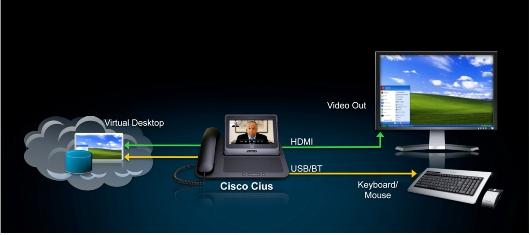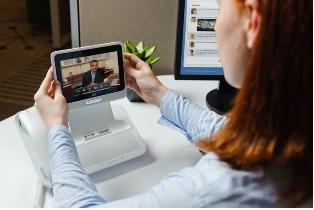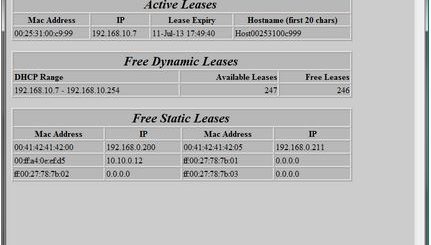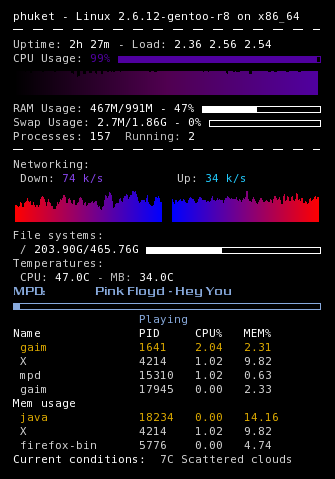Cisco Plans Tablet for Mobile Collaboration Called Cius

Cisco announced on Tuesday a mobile collaboration business tablet. The new device, called Cius (pronounced “see-us” ), is based on Google’s open-source Android operating system and provides virtual desktop integration with Cisco’s collaboration and communications applications.
Applications Capabilities:
- 802.11a/b/g/n Wi-Fi, 3G/4G data and Bluetooth 3.0 help employees stay connected on and off-campus
- HD video (720p) with Cisco TelePresence solution interoperability for lifelike video communication with the simplicity of a phone call
- Virtual desktop client enables highly secure access to cloud-based business applications
- Android operating system, with access Android marketplace applications
- Collaboration applications including Cisco Quad, Cisco Show and Share, WebEx, Presence, and IM
Tablet Highlights:
- 7” diagonal, high-resolution color screen with contact-based touch targets delivers an elegant, intuitive experience
- HD Soundstation supports Bluetooth and USB peripherals, 10/100/1000 wired connectivity and a handset option
- Detachable and serviceable 8-hour battery for a full day of work
- Highly secure remote connections with Cisco AnyConnect Security VPN Client
- HD audio with wideband support (tablet, HD Soundstation)
• Lower hardware costs: Cloud computing eliminates the need for employees to carry around expensive laptops (and desk-bound workers to use more expensive PCs), so IT departments can replace these higher-cost clients with thin clients, which are less expensive to manage.
• Enhanced security, availability, and efficiency: Centralizing applications in the data center, instead of deploying them locally on clients, reduces security maintenance concerns and risk of intellectual property loss.
• More flexible access to computing capabilities: Getting real-time, on-demand access to business applications and the latest versions of shared documents enables anytime, anywhere collaboration. It is truly a “win-win” for IT and users.
• Controlled migration to cloud computing: You can slowly migrate to cloud computing by deploying business tablets to executives, sales representatives and knowledge workers and then expand mobility across your entire enterprise. Instead of bringing employees to where the work is, you can bring the work to where the employees are.

Virtualization is only part of the story. Cisco Cius operates on the Android operating system, so it delivers access to a diverse and ever-expanding Android developer community. Access to these applications can be open or controlled. Control mechanisms, if enabled, will allow your organization to provision the Google Android applications your users can use. The choice is yours.This is an interesting little touch pad that I am sure I will never see but you never know this may be showing up in your office in the future.





